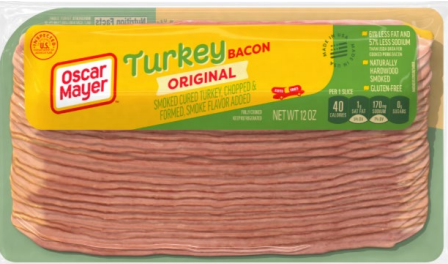The UK Health Security Agency published a report on STEC data from 2023. The main points of the 2023 annual report are: (i) Overall, 2,018 cultured-confirmed cases of STEC were reported in England during 2023, a decrease of 2.2% compared to 2022. (ii) A total of 533 culture-confirmed cases of STEC O157 were reported in England in 2023 compared to 762 in 2022, a decrease of 30%. A total of 2,260 cases of STEC non-O157 were reported, representing a 14% increase compared to 2022 and a 125.6% increase compared to 2019. The most commonly isolated serogroup was STEC O26. Children aged 1 to 4 years had the highest annual incidence of STEC O157 infections. (iii) Around a third of confirmed STEC O157 cases and one third of STEC non-O157 cases in England were hospitalized. One death was reported among STEC O157 cases, and 2 deaths among STEC non-O157 cases. (iv) 2.1% of STEC O157 cases and 1.7% of STEC non-O157 reported developing HUS. 10% of confirmed STEC O26 cases developed HUS. (v) Seven outbreaks of STEC involving 228 cases, 145 of whom were residents in England, were investigated in 2023. One outbreak involved STEC O157, 3 involved STEC O145, 2 involved STEC O26, and 1 involved STEC O183. A suspected or confirmed vehicle was identified for all 7 outbreaks and included beef, salad leaves, cucumber, dried fruits, and dairy products.
According to the CFIA, Dovetail Collections has recalled four types of Ceder’s Distilled Non-Alcoholic Drinks from the Canadian marketplace due to mold contamination. The product was sold nationally at the retail level. No illnesses were reported as a result of using the products. The non-alcoholic drinks impacted are Ceder’s-branded beverages (Ceder’s Classic, Crisp, Wild, and Rose distilled zero-proof drinks) sold in 500-milliliter bottles. @ https://recalls-rappels.canada.ca/en/alert-recall/ceder-s-brand-non-alcoholic-beverages-recalled-due-mould
Ceder’s brand Non-alcoholic Beverages recalled due to mould.
ruth
In Hong Kong, the Centre for Food Safety (CFS) of the Food and Environmental Hygiene Department, on July 3, 2025, urged the public not to consume prepackaged turkey bacon originating from the United States (US) due to possible contamination with Listeria monocytogenes. The recall followed the USD/FSIS recall of the product in the US. Upon learning of the incident, the CFS immediately followed up on the case. A preliminary investigation found that a vendor, City Super Limited, had sold one of the affected products (pack size: 12oz; use-by date: July 26, 2025), a spokesman for the CFS said. The vendor concerned has ceased sales and removed the affected product from shelves, and has initiated a recall in accordance with the CFS’s instructions. @ https://www.cfs.gov.hk/english/press/20250703_11685.html
ruth
The Danish Veterinary and Food Administration reported that Danish seafood processor Polar Salmon Hjerting Laks, owned by Greenland’s Polar Group, has recalled smoked halibut due to Listeria monocytogenes being detected in the product. The following products were affected (i) Netto Premieur røget hellefisk i skiver / Sliced smoked halibut (100g) Use by date of 18-07-2025.(ii) Salling Princip røget hellefisk i skiver / Sliced smoked halibut (100g) Use by date of 22-07-2025. And (III) Polar Salmon Hjerting Laks A/S premium smoked salmon, 100 grams all fish, cold smoked products, and all lots.@ https://foedevarestyrelsen.dk/nyheder/tilbagekaldte-produkter/2025/jul/listeria-i-roeget-hellefisk
Polar Salmon Hjerting Laks tilbagekalder røget hellefisk, da der er påvist Listeria monocytogenes i produktet. Har du produktet, bør du kassere det eller levere det tilbage til butikken, hvor det er købt.



